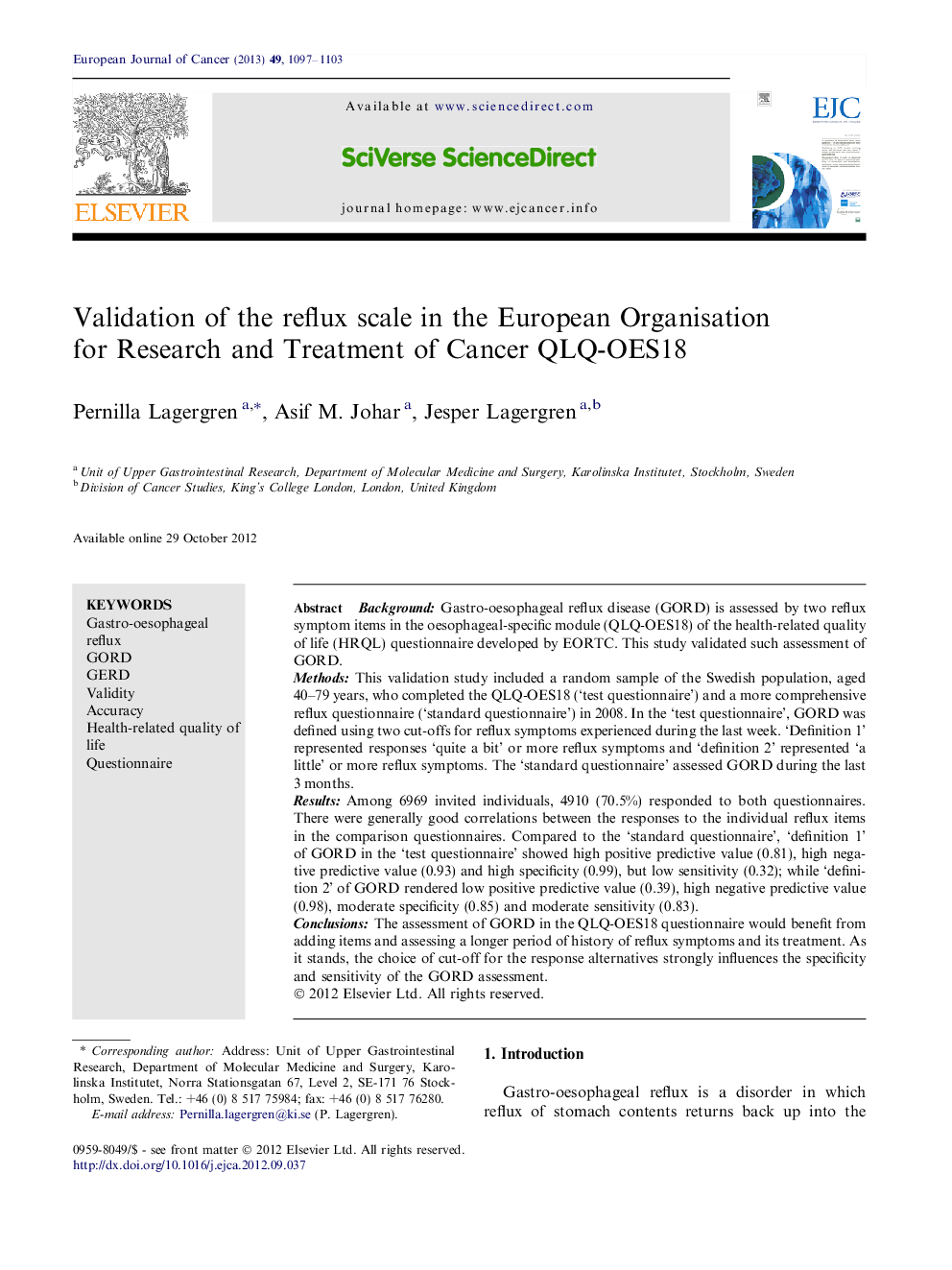| Article ID | Journal | Published Year | Pages | File Type |
|---|---|---|---|---|
| 2122919 | European Journal of Cancer | 2013 | 7 Pages |
BackgroundGastro-oesophageal reflux disease (GORD) is assessed by two reflux symptom items in the oesophageal-specific module (QLQ-OES18) of the health-related quality of life (HRQL) questionnaire developed by EORTC. This study validated such assessment of GORD.MethodsThis validation study included a random sample of the Swedish population, aged 40–79 years, who completed the QLQ-OES18 (‘test questionnaire’) and a more comprehensive reflux questionnaire (‘standard questionnaire’) in 2008. In the ‘test questionnaire’, GORD was defined using two cut-offs for reflux symptoms experienced during the last week. ‘Definition 1’ represented responses ‘quite a bit’ or more reflux symptoms and ‘definition 2’ represented ‘a little’ or more reflux symptoms. The ‘standard questionnaire’ assessed GORD during the last 3 months.ResultsAmong 6969 invited individuals, 4910 (70.5%) responded to both questionnaires. There were generally good correlations between the responses to the individual reflux items in the comparison questionnaires. Compared to the ‘standard questionnaire’, ‘definition 1’ of GORD in the ‘test questionnaire’ showed high positive predictive value (0.81), high negative predictive value (0.93) and high specificity (0.99), but low sensitivity (0.32); while ‘definition 2’ of GORD rendered low positive predictive value (0.39), high negative predictive value (0.98), moderate specificity (0.85) and moderate sensitivity (0.83).ConclusionsThe assessment of GORD in the QLQ-OES18 questionnaire would benefit from adding items and assessing a longer period of history of reflux symptoms and its treatment. As it stands, the choice of cut-off for the response alternatives strongly influences the specificity and sensitivity of the GORD assessment.
